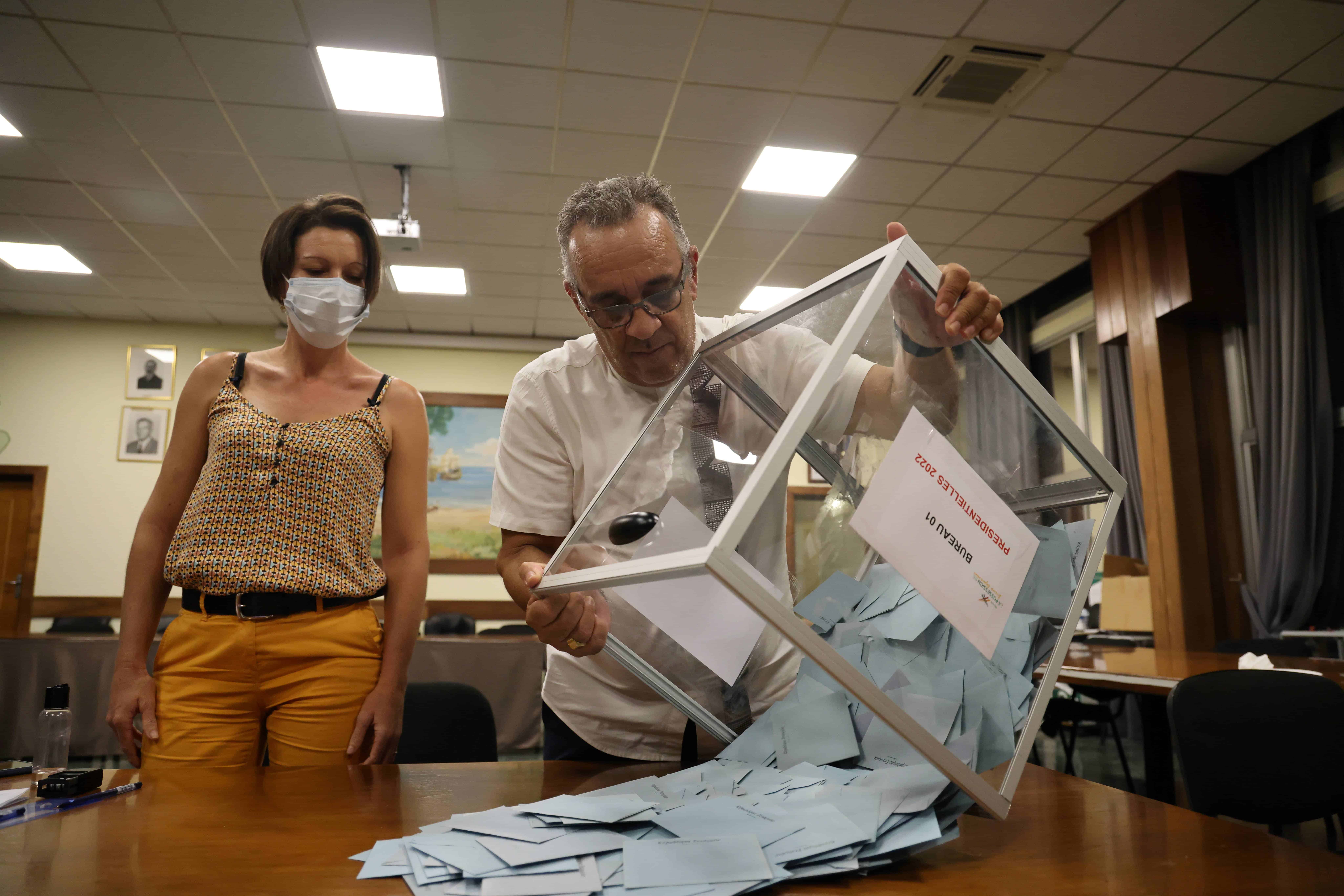French President Emmanuel Macron faced a tough test Sunday as he sought re-election in a vote projected to produce a tight run-off duel with far-right leader Marine Le Pen.
Some 48.7 million voters were eligible to vote in the election after an unusual campaign overshadowed by Russia’s invasion of Ukraine, which analysts have warned could lead to unpredictable outcomes especially if turnout is low.
Initial indications showed that midafternoon turnout was over four percentage points lower than at the same stage in 2017, indicating that participation could be the lowest since 2002, when record numbers of French stayed away.
Polls predict that Macron will lead Le Pen by a handful of percentage points in round one, with the top two going through to a second-round vote on April 24.
Far-left candidate Jean-Luc Melenchon is snapping at their heels in third place and still fancies his chances of reaching the second round at the expense of Le Pen or even — in what would be an extraordinary upset — Macron himself.
Macron cast his ballot in Le Touquet on the northern French coast, accompanied by his wife Brigitte, at around lunchtime.
Le Pen voted in Henin-Beaumont, also in the north of the country, while Melenchon cast his ballot in the southern port city of Marseille.
Although her opponents accuse her of being an extremist bent on dividing society, Le Pen has with some success sought to show a more moderate image and concern with voters’ daily worries such as rising prices.
Macron by contrast has campaigned relatively little, by his own admission entering the election campaign later than he would have wished due to the war in Ukraine.
French television channels will broadcast projections of the final results, which are generally highly accurate, as soon as polls close at 1800 GMT.
‘Hate them all’
If Macron and Le Pen reach the second round as forecast, analysts predict that their clash will be far tighter than in 2017, when the current president thrashed his rival with 66 percent of the vote.
“There is uncertainty,” said political scientist Pascal Perrineau, pointing to high numbers of voters who were still undecided or who changed their minds during the campaign, as well as absentee voters.
Pollsters forecast that final turnout would be also be down sharply on 2017, though likely above the record-low turnout of just under 73 percent in the first round in 2002.
in the Paris suburb of Pantin, Blandine Lehout, a 32-year-old actress, said none of the candidates deserved her vote.
“For the first time in my life I’m not going to vote,” she said. “I’ll vote in the (June) parliamentary election, but in this election, I hate them all. We’re at a stage where they frighten me.”
But Michele Monnier, 77, was up early to vote: “Women of my generation fought for the right to vote so whatever the election is I am going to vote.”
The stakes are high for Macron, who came to power aged 39 as France’s youngest president with a pledge to shake up the country.
He would be the first French president to win a second term since Jacques Chirac in 2002.
If he does, he would have five more years to push through reforms that would include raising the pension age to 65 from 62, in defiance of union resistance.
He would also seek to consolidate his number-one position among European leaders after the departure of German chancellor Angela Merkel.
A Le Pen victory would be seen as a triumph for right-wing populism, adding to election victories last weekend by Hungarian premier Viktor Orban and Serbian leader Aleksandar Vucic, who both have cordial ties with Russian President Vladimir Putin.
Republican front?
The candidates of France’s traditional parties, the right-wing Republicans and the Socialists on the left, are facing a debacle if polls prove accurate.
The Republicans’ Valerie Pecresse and the flagging Socialist nominee Anne Hidalgo appear certain to be ejected in the first round, as does the Greens candidate Yannick Jadot.
Far-right former TV pundit Eric Zemmour made a stunning entry into the campaign last year but has since lost ground, and analysts say he has actually aided Le Pen by making her appear more moderate.

